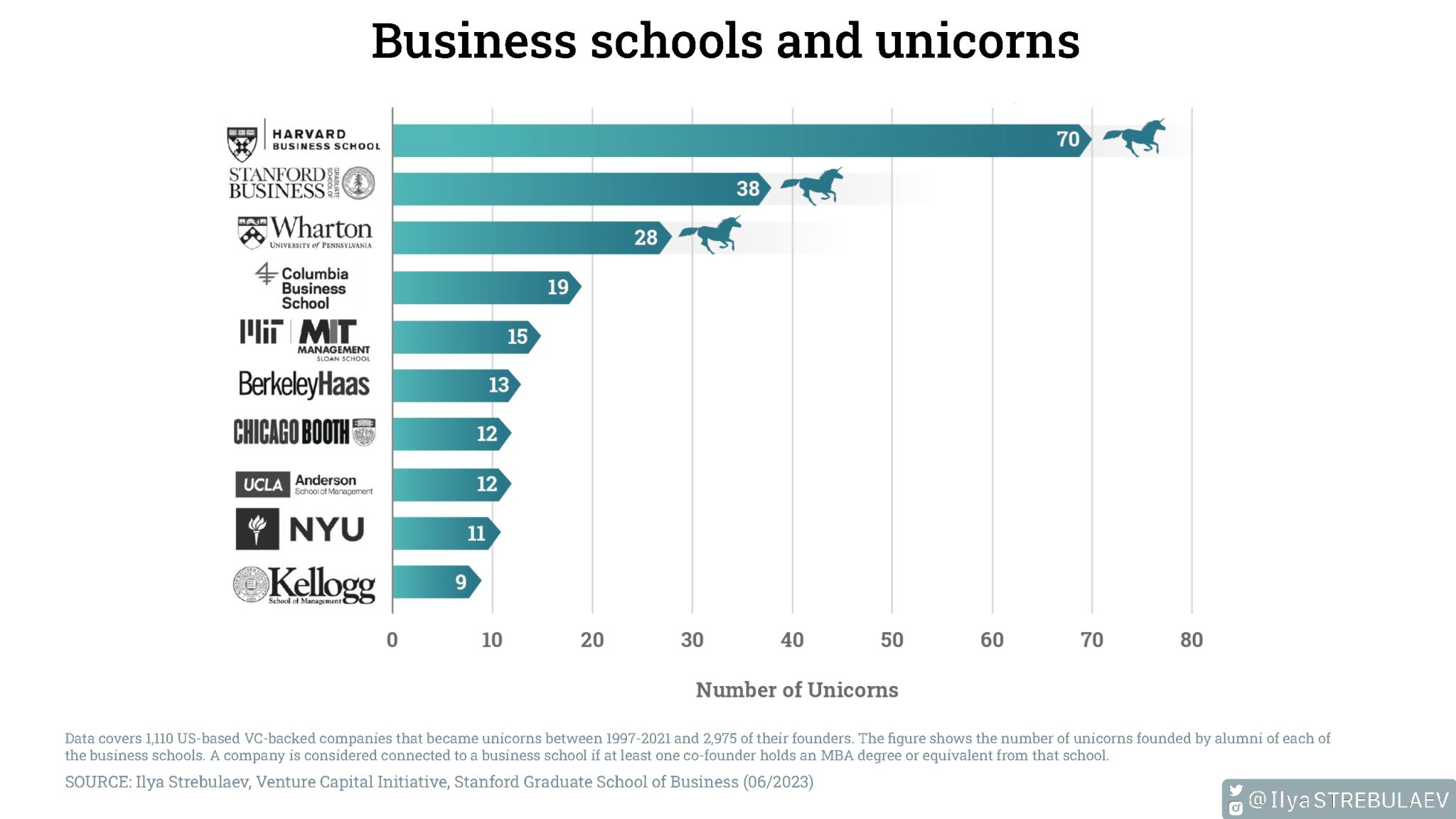The correlation between entrepreneurial success and having a Master of Business Administration (MBA) is one of the most contested areas of the start-up ecosystem.
Many leading entrepreneurs who do not have an MBA argue they are not necessary for success, while those with an MBA firmly believe a large part of their success is a result of their studies.
New research from the Venture Capital Initiative team at Stanford University Graduate School of Business in the United States has looked at the education levels of the founders of US-based unicorns (companies with a valuation of more than $US1 billion).
The data was shared by Stanford Business School Professor Ilya Strebulaev and showed that 323 (29%) out of 1,110 US-based VC-backed unicorns have at least one founder who went to a business school. Out of these, 70 (22%) have founders from Harvard Business School, such as Turo, Xometry, and ID.me.
38 (11%) unicorns have a Stanford University Graduate School of Business connection, such as Medallia, SnapTrack, and Quizlet. 28 (9%) are connected to The Wharton School, such as jet.com Integration Shopify, Icertis, and Karat.
Columbia Business School, MIT Sloan School of Management, and University of California, Berkeley, Haas School of Business are in the next three places with 19, 15, and 13 unicorns.
Ultimately, the value of an MBA will depend on a student’s specific circumstances and goals. Not everyone wants to build a billion-dollar business from scratch.
While the data shows an MBA is not a prerequisite for entrepreneurial success, it can offer several potential benefits:
- Business fundamentals: An MBA program typically covers a broad range of business topics, such as finance, accounting, marketing, operations, strategy, and organisational behavior. This knowledge can provide a solid foundation for entrepreneurs who may not have formal business education or experience.
- Networking opportunities: MBA programs often attract a diverse group of professionals, including classmates, faculty, and alumni who can become valuable contacts and potential collaborators or investors in the future. Building a strong network within the business community can open doors to partnerships, mentorship, and access to resources.
- Skill development: MBA programs can help entrepreneurs develop crucial skills for managing and growing a business, such as leadership, decision-making, problem-solving, negotiation, and strategic thinking. These skills can enhance their ability to navigate complex business challenges effectively.
- Access to resources and support: Many MBA programs provide access to resources such as libraries, databases, research centers, and career services that can benefit entrepreneurs. Additionally, some business schools offer incubators, accelerators, or entrepreneurship centers that provide guidance, mentorship, and support for launching and scaling a business.
- Credibility and perception: Having an MBA can enhance an entrepreneur’s credibility in the eyes of investors, partners, and stakeholders. It can signal a certain level of knowledge and dedication to the business. However, it’s worth noting that real-world experience and tangible results often carry more weight in entrepreneurial circles.
It’s important to remember that the value of an MBA to entrepreneurs may vary depending on the individual’s specific circumstances, goals, and the resources available to them. Some entrepreneurs may find that the practical experience gained from starting and running a business outweighs the benefits of pursuing an MBA, while others may see value in combining both academic knowledge and real-world experience.
The decision to pursue an MBA as an entrepreneur should be based on a careful assessment of personal goals, needs, and the potential return on investment in terms of time, money, and effort.








